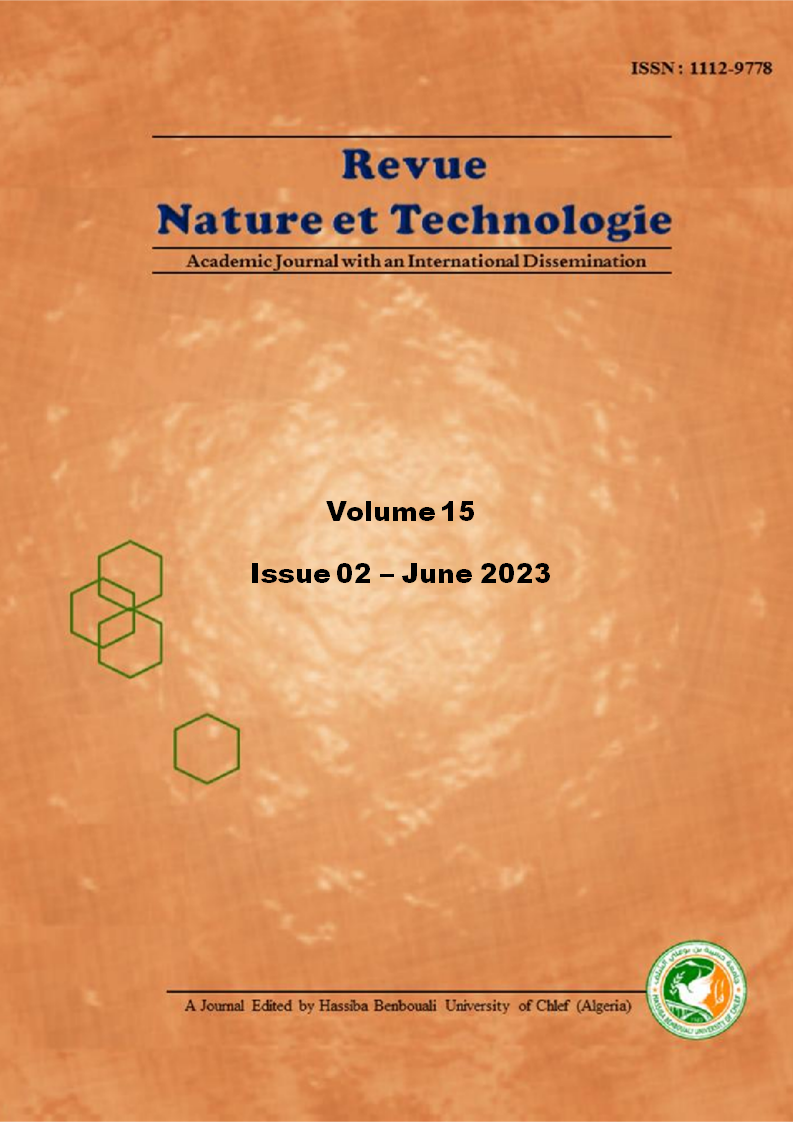Composting-methanization of solid urban bio-waste from the municipality of Chlef (Algeria)
Abstract
In Chlef, the management of urban solid bio-waste is limited to "all in controlled landfill or in wild landfill". This bio-waste can be treated by composting-methanization. With this in mind, two temperature regimes were chosen, the mesophilic regime (35°C) and the thermophilic regime (55°C). The choice of a neutral pH is an optimal value indicating the stability and the good progress of the anaerobic digestion. As well as monitoring the parameters of the composting process. The results of the composting process show that the values of temperature (35°C to 62°C), pH (5 to 8), moisture content (60% and 40%) and percentage of organic matter (74% to 41%) indicate that the fermentation process is going well. The composting process enters the cooling phase after 60th day of fermentation. While the results of the methanization show that a substrate with an organic matter content of 73% causes an accumulation of acids in the digester and a stop of the reaction in mesophilic conditions. Therefore, the thermophilic mode is more suitable for the anaerobic degradation of raw bio-waste. The tests were conclusive in obtaining a flammable biogas. The values of the VFA (Volatile Fatty Acid)/ACT (Alkalimetric Title) ratios below 0.1 show the good functioning of the anaerobic digestion. The methanization of two masses of substrate at the beginning and during the cooling phase of composting allows a gain in residence time, thus a lower energy cost.

Downloads
Published
How to Cite
Issue
Section
License
Copyright (c) 2023 Nature & Technology Journal

This work is licensed under a Creative Commons Attribution 4.0 International License.
- All publications of "Nature & Technology Journal" are available under CC-BY Creative Commons Attribution 4.0 International which allows sharing, copying, reproduction, distribution, communication, reuse, adaptation by all means, in all formats and under all licenses.
- Any exploitation of the work or derivative works, including for commercial purposes, is possible. The only obligation is to credit the creators of the authorship of the original works, to indicate the sources and to indicate if modifications were made to the works (obligation of attribution).
This License gives:
- Nature & Technology Journal the right to develop, promote, distribute and archive the article set cited above (including, without limitation, the right to publish the work in whole or in part in any form whatsoever) and ensure the widest dissemination.
- The author (s) reserves the right to use all or part of this article, including tables and figures of his own works, providing that the appropriate recognition is given to the publisher as the holder of the copyrights, and the right to make copies of this article for its own use, but not for sale.




